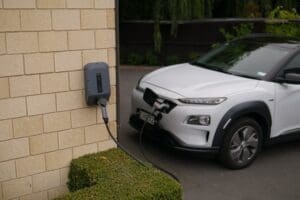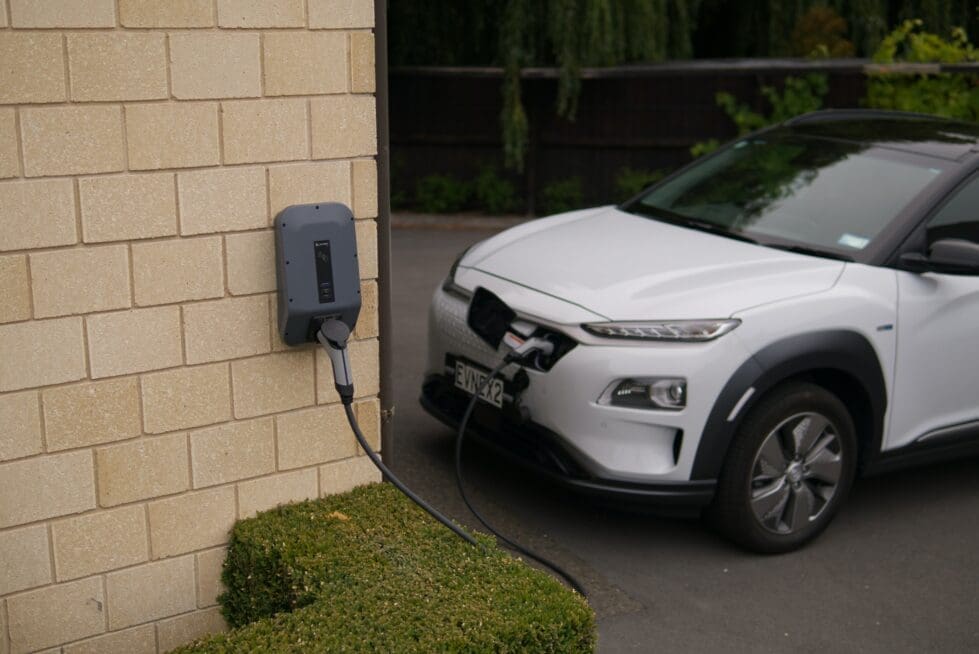

Republicans voiced their concerns with a bill requiring installation of electric vehicle charging stations.
Republicans led a charge Thursday to derail a bill that requires new homes and multi-family dwellings to be wired for electric vehicles, a move that Democrats say will help ensure the sale of more cars and help the environment.
They failed.
Senate Substitute 1 for Senate Bill 103, sponsored by Sen. Sarah McBride, D-Wilmington, would require all new single family homes after 2024 and multi-family homes after 2025 be equipped with a conduit for installing an electric vehicle charger.
While the bill is similar to the original Senate Bill 103, it clarifies the definition multi-family dwelling to only be for nontransient hotels, boarding houses, and motels, removes voltage from the definition of electric vehicle parking spaces for clarity, specifies that final site plans be submitted, not just approved, by Jan 1, 2025 for multi-family homes, and clarifies that a charger can be installed in an unassigned parking space.
Republicans argued that charging cars in homes creates a fire hazard, that the state is ignoring people who don’t want one and that installing home chargers is expensive.
Related Story: Delaware plans how to subsidize electric charging stations
Senate Minority Leader Sen. Gerald Hocker, R-Ocean View, said that he’s heard from firefighters who are against the bill.
“The fire service is totally, 100% against charging any vehicles in any residential areas, like a garage or a building…they have a fire on a charger on electric vehicles, that fire will not be able to be put out, and there will be deaths,” Hocker said. “I heard that presentation by a fireman.”
According to research done by AutoinsuranceEZ, 1,529.9 gas vehicles catch on fire for every 100,000 sold, compared to 25.1 electric vehicles catching on fire for every 100,000 sold.
While electric vehicles are less likely to catch on fire, their fires can burn for longer because of the nature of the lithium-ion battery.
Sen. Brian Pettyjohn, R-Georgetown, asked if people building their own homes would need to to follow the same building requirements, and McBride said that yes they would.
Pettyjohn said that electric vehicle chargers aren’t something they should be telling people to include in their homes.
“This starts to operate outside of those norms that we’ve put in building codes,” Pettyjohn said.
“Now if I’m somebody that’s building my house, and I don’t put a conduit in for an electric vehicle, then I can’t get a certificate of occupancy for my house. That’s not right.”
Related Story: Bill on EV chargers in new homes passes Senate committee
Rep. Kyle Evans Gay, D-Arden, owns an electric vehicle and said installing a conduit into an already built home can be difficult, making it more important to have them pre-installed in homes.
Eric Buckson, R-Dover, said that the change to electric vehicles should be market driven.
“This is a nicety to have, the same way that air conditioning or proper outlets for fireplace, upstairs dryer washer, all of these things,” Buckson said. “But they’re driven by the market and the desire of the customer to want those things.
“So if this is going to be as popular as you say it is, the market will do what it’s supposed to do. This will be offered in a portfolio of options for the buyer to choose based on their budget and their desire.”
McBride said that vehicle manufacturers are heading in the direction of electric vehicles.
“You can listen to Toyota. You can listen to General Motors, which has said that their fleet is going to be electric by 2035. Opposing this bill will cost Delaware families money in the future. Simple as that. and the worst case scenario…is you’re gonna have a conduit in a home that will allow you to put a fridge in, freezer in, a whole host of other uses in a garage.”
The bill, which now makes its way to the House, has 13 additional sponsors and co sponsors, all of whom are Democrats.
Share this Post



